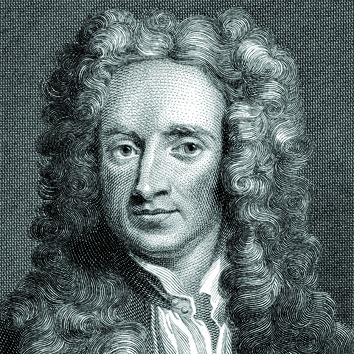
John Gribbin is a prolific writer who introduces and explains scientific ideas to non-specialists. Mary Gribbin is the co-author of many of his books. They have covered a huge spectrum of scientific topics, from quantum physics to genetics, from climate change to cosmology.
In their recent book, they have ventured into an important chapter in the history of science. The book is subtitled "Hooke, Halley & the birth of British Science", and deals with the lives and works of Robert Hooke and Edmund Halley, two scientific stalwarts of seventeenth century Britain. And the title of the book contains the phrase, "shadow of a giant", reference to another towering figure of the same era and the same land, Isaac Newton. The authors begin with the supposed premise that the contributions of Hooke and Halley have been completely overshadowed by the work of Newton, and they want to bring these two geniuses out of oblivion.
This initial assumption can be questioned. Robert Hooke is by no means an unknown or forgotten name. Every school student knows his name as the father of cell biology, a position that Newton could not have possibly eclipsed because Newton never forayed into biology. In the field of Physics where both geniuses contributed, Hooke is very well-known for a law that bears his name: a law describing the deformation of objects under the action of forces. Edmund Halley is well-known through an eponymous comet. In fact, if asked to name a comet, this is the only name that most people would come up with.
I guess the Gribbins would agree with what I have said about the contributions so far. But they would say, at least they try to argue in their book, that these two scientists' fame is not commensurate with their contributions to science, and that is Newton's doing. In other words, Newton deliberately plotted to steal the limelight away from them by denying references to their work, despite the courtesy and help they extended to Newton at various times.
Personally, I am even willing to go that far. I know that Newton got entangled in quite a few priority claims. His clash with Leibnitz on the discovery of calculus was one famous example of this kind. I remember that Stephen Hawking started the appendix of his best-seller, A brief history of time, with the sentence, "Isaac Newton was not a pleasant person".
But the Gribbins go much farther. They brand Newton as a "serial plagiarist", "an upstart young man", and many other things inbetween and beyond. In my opinion, they grossly overstepped in this programme. While in their summary they squarely attribute the credits for the law of gravitation to the "trinity" - to Hooke for the intuitive formulation, to Newton for the mathematical equations, and to Halley for applying the law to new problems - they are extremely unkind to Newton at other places, to the extent that when they quote a letter that Newton wrote to Hooke in which the famous phrase, "...on the shoulders of giants", appears, they conclude that Newton was satirically referring to the short stature of Robert Hooke.
Regarding credits, even if Newton tried to erase the names of Hooke and others from Principia, he should not be the only one to blame. Their contemporaries should have distributed the credits, which they obviously didn't. And it is also well-known that credits in science often go to one person when many others were involved in formulating the seed ideas regarding a given topic of investigation. The Gribbins hint that the law of gravitation should fairly be called the "Hooke-Newton law". They know that the laws of electromagnetic theory are called Maxwell's equations, although Faraday, Ampère and others have contributed hugely to their discovery. Ask anybody who discovered the principle of relativity and the answer you are going to get is Einstein, although Einstein really added an extra postulate (albeit a crucial one) to the principle that was expounded by Galileo three centuries ago. In more recent times, the particle called the Higgs boson (which has the disgusting nickname of "God particle") was not proposed by Peter Higgs alone: in fact, the Nobel Prize for the proposal went to Higgs and François Englert, and would have been shared also by Robert Brout had he been alive. Rather than spending a lot of energy in arguing that Newton's malice was the only determining factor in the relative obscurity of Hooke and Halley, had they spent more effort in gentle evaluation of the contributions of these two stalwarts including fields like cell biology where they are not overshadowed at all, I would have felt happier.
I am not saying that the evaluation is altogether absent. I learned many things by reading this book. In fact, I must confess that I did not know about Hooke's contributions to the theory of gravitation and many other things, confirming the fundamental motivation of the authors behind writing this book. The book contains a lot of information about the history of seventeenth century British science, and I heartily recommend the book to the reader. I only wish that the tone were somewhat less belligerent.










